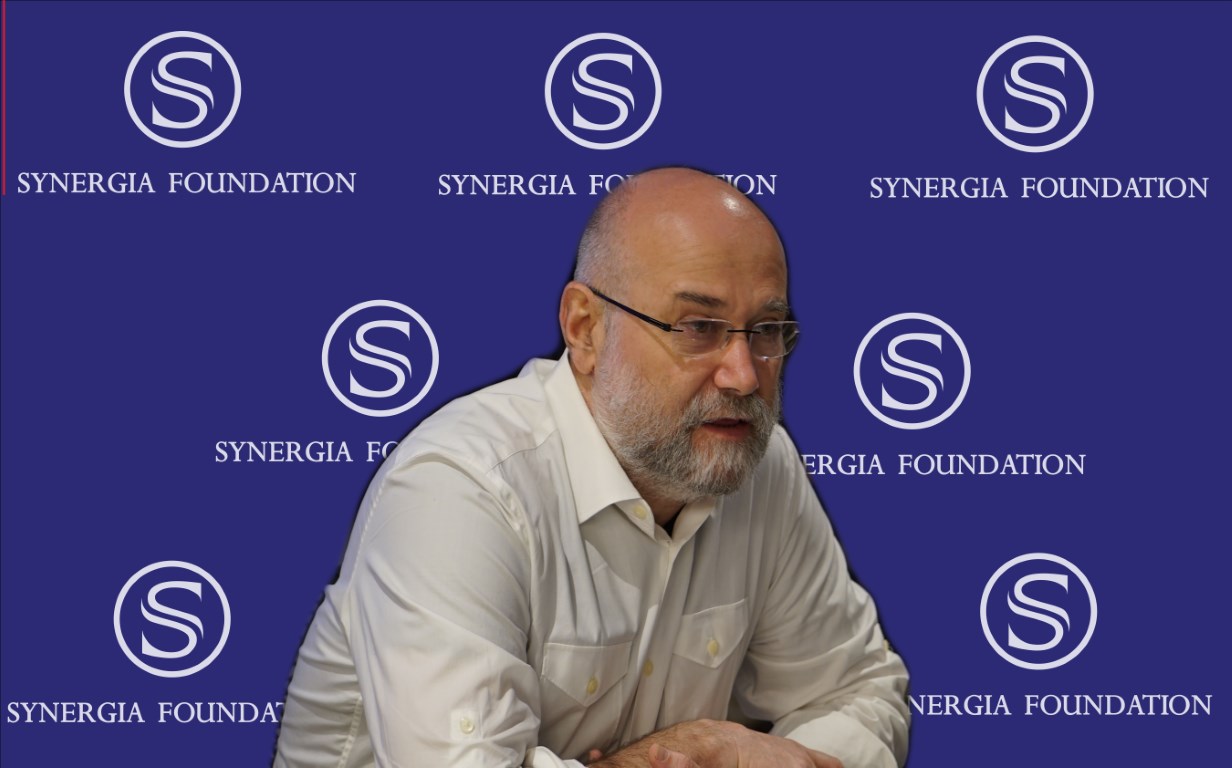Metamorphoses – Talking Technology
May 4, 2018 | Expert Insights

Professor Yochai Benkler, the Berkman Professor of Entrepreneurial Legal Studies at Harvard Law School, was at the Synergia Foundation on May 3rd, 2018 to provide his expert views about the impact of the intersection of internet & social media on democratic societies.
Background
There is no denying that the world has embraced technology. From speedy access, to the Internet on-the-go, to the ability to instantly get in touch with anyone in the world, recent technological developments have become integral to our lifestyles. The digital world has an impressive footprint of 2.2 billion active users around the world, which in the last year alone has risen by 176 million.
Since 2017, there has been increased focus on how social media has influenced society’s functioning especially with regards to electoral outcomes. The consensus among the intelligence agencies in the US is that Russia conducted an ‘influence’ campaign to harm Hillary Clinton’s presidential bid. Experts have suggested that social media platforms such as Twitter, Facebook and Google were mobilized to flood the internet with disinformation.
Online platforms Google and Twitter have admitted to finding evidence of Russian interference. It has been reported that Russian operatives spent tens of thousands of dollars on YouTube ads, Google Search products and Gmail - especially related to the 2016 Presidential elections. Nearly $4,700 was spent by accounts connected to the Russian government on ‘search and display’ ads in Google. Additionally, operatives from Russia reportedly spent $53,000 on pointedly political ads.
Across the world governments have grappled with the rise of “fake news” and also whether it has played a role in inciting violence or specific behaviors of the public. Since the start of 2018, Facebook has committed to making significant changes to their platform. In a post on his page on the social network early this month, creator and CEO Mark Zuckerberg said the website was making too many errors enforcing policies and preventing misuse of its tools. Zuckerberg has famously set himself challenges every year since 2009. This year the Facebook creator said his “Personal challenge” is to fix important issues with the platform to prevent misuse of the website.
Professor Benkler
Professor Yochai Benkler is the Berkman Professor of Entrepreneurial Legal Studies at Harvard Law School, and faculty co-director of the Berkman Klein Center for Internet and Society at Harvard University. His books include The Wealth of Networks: How social production transforms markets and freedom (Yale University Press 2006), which won academic awards from the American Political Science Association, the American Sociological Association, and the McGannon award for social and ethical relevance in communications.
Analysis
On May 3rd, 2018, Professor Yochai Benkler presented a talk at the Synergia Foundation titled, “Metamorphoses – Talking Technology”. The talk was attended by industry experts and thought leaders, who also presented their views on the subject.
The talk focused on the intersection of internet and social media on democratic societies and its impact on political communications, democratic governance and discourse. The subsequent discussion also included how automation and robotics could lead to significant destabilization of labor markets in many countries around the world with an emphasis on the growth patterns of the middle class.
He said, “I have spent many years thinking about the relationship between the internet and democracy.” He specifically highlighted the controversy regarding the 2016 US Presidential elections. He noted that through the course of his research, his team was able to decipher that social media did not play a definitive role in the outcome of the elections. He said, “We can’t answer those questions definitively…but we can get quite close and we have some unconventional conclusions. The most important thing we found is that we don’t have polarization.” He noted that in the US there is a very clear and tightly clustered right wing narrative pushed forth by the media that profits from it.
During the course of his talk, Professor Benkler also spoke about ‘Gamergate’ and how news media outlets like the Breitbart have in the past scheduled certain breaking news stories to coincide with real world events for maximum impact.
Assessment
Our assessment is that concerns about so-called fake news have grown in tandem with the expansion of social media. The democratic functions of governments across the world are at stake presently, as a result of this. Should social media giants such as Facebook be held accountable for the content and ideas that are amplified through their platforms?








Comments